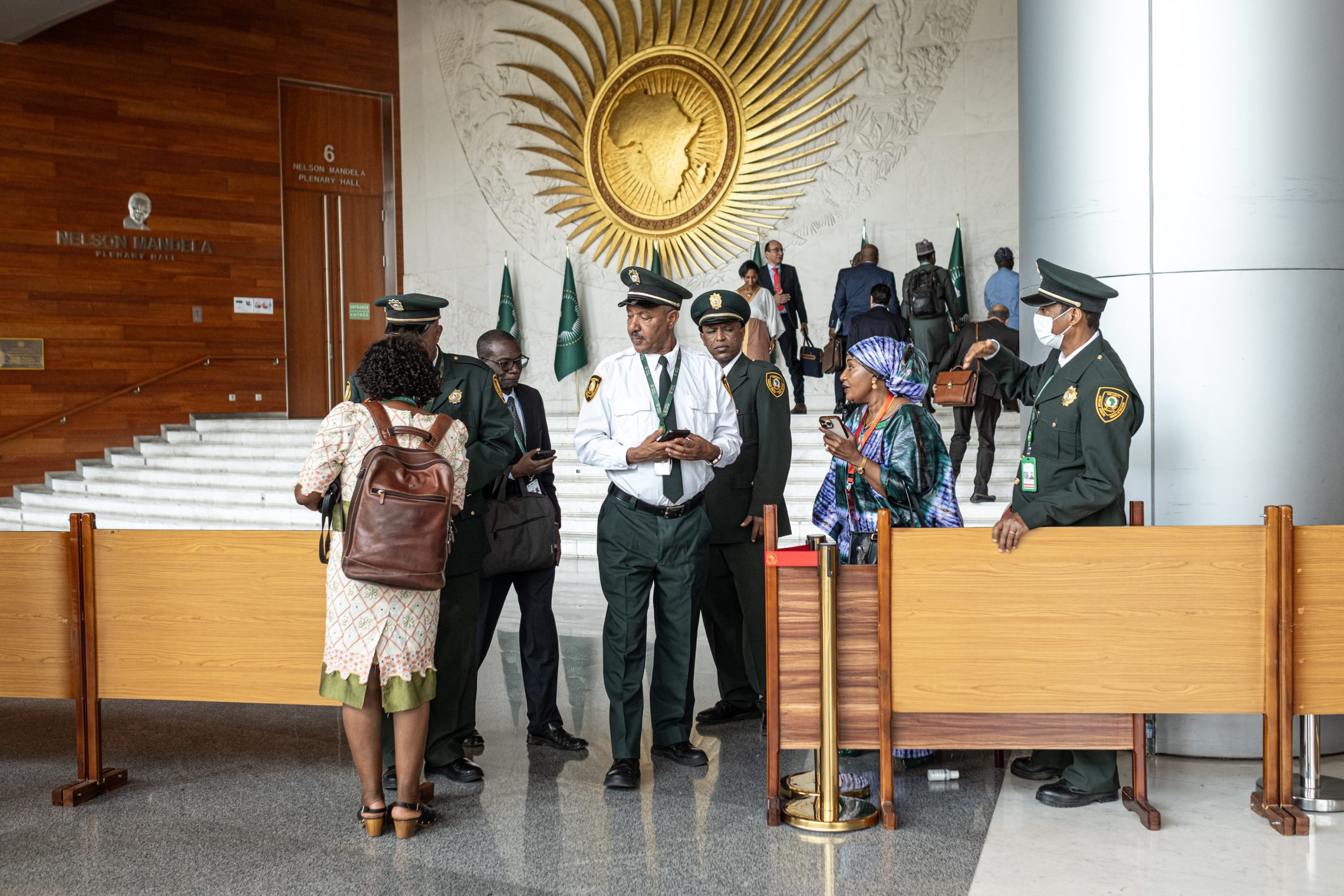Ethiopia 2025 – AFP
In recent days (12-16 february 2025), Addis Ababa hosted the 38th African Union Summit, bringing together heads of state and diplomatic representatives from across Africa.
This year’s central theme was meant to focus on reparations for the damage inflicted on the continent by colonialism and the slave trade. Discussions were also expected on agricultural development, Africa’s need for permanent representation on the UN Security Council, the implementation of the African Continental Free Trade Area, and a unified position on climate security for COP 30 in Brazil.
However, the agenda was overtaken by pressing discussions on the severe crises currently unfolding, which have heightened tensions and unease among leaders. In Sudan, a devastating civil war has left hundreds of thousands dead and displaced 12 million people. Meanwhile, in northeastern DR Congo, M23/AFC rebels—backed by the Rwandan government—have seized Goma (North Kivu) and now Bukavu (South Kivu), resulting in nearly 3,000 casualties and raising fears of a broader regional conflict.
Ultimately, AU members called for an immediate ceasefire, humanitarian aid access, and the initiation of dialogue between the warring parties, with support from the AU itself. Yet, so far, no concrete action has been taken, and no clear stance or condemnation has been issued.
At the summit, Djiboutian Mahamoud Ali Youssouf was elected as the new President of the AU Commission, while Angolan President João Lourenço assumed the rotating AU presidency. They now face the challenge of leading efforts to address these crises.
This is a critical moment for Africa and for the AU, a pan-African institution often criticized as overly bureaucratic and ineffective. With the West and other global powers either looking inward or distracted by conflicts in Ukraine and Gaza, the responsibility of mediation may fall solely on African leaders. If they do not step up, it is likely that no one else will.
In the photos, an almost suspended atmosphere lingers in the halls of the AU headquarters—a world that remains very (perhaps too) distant from the realities faced by Africa’s population.
























